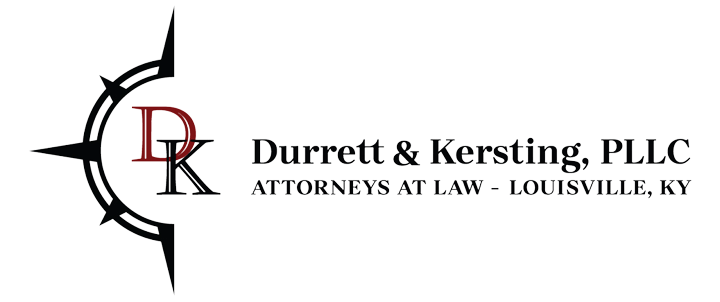EPO & DVO
EPO & DVO in Louisville, KY
When a person has been the victim of, or is accused of, domestic violence an Emergency Protective Order (EPO) is often issued by the Court. An Emergency Protective Order (EPO) is a temporary order of protection, put into place until a Court can hear both sides of the case. After the Emergency Protective Order (EPO) is issued, the Court conducts a hearing to determine if a Domestic Violence Order (DVO) should be issued. A Domestic Violence Order (DVO) is a long term Order of Protection, which can be in place up to three years. A Domestic Violence Order (DVO) can be extended at the request of the Petitioner.
An individual can take out an Emergency Protective Order (EPO) against a spouse, a significant other that they have lived with, or a person with whom they have a child in common. An Emergency Protective Order (EPO) is a temporary Order of Protection issued as the result of an accusation of domestic violence. Depending on the circumstances and the desires of the parties, the Courts can issue a no contact Domestic Violence Order (DVO) or a no unlawful contact Domestic Violence Order (DVO). When a no contact Domestic Violence Order (DVO) is put into place, the Respondent is prohibited from having any contact with the Petitioner, and may be ordered to stay a certain distance away from specific locations. When a no unlawful contact Domestic Violence Order (DVO) is issued, the parties may still have contact with each other but there cannot be any violence and threats by the Respondent. If there are any violations of a Domestic Violence Order (DVO), the Respondent may be arrested immediately and potentially face additional charges in criminal and Family Court.
Once a Domestic Violence Order (DVO) is put into place by the Court, the Order can remain in place for up to three years. The Petitioner may request that the Court extend an existing Order before the expiration date. Domestic Violence Orders (DVO) may be amended between a no contact and a no unlawful contact Order. If the parties involved in the case have children together, additional factors need to be considered. If the situation calls for such a protection, Orders can be issued on behalf of the parties’ children.
The lawyers at Durrett & Kersting are experienced in representing both the Petitioner and the Respondent in Emergency Protective Order (EPO) hearings. Contact your Louisville Family Lawyer today for a free consultation.
- What is the difference between an Emergency Protective Order (EPO) and a Domestic Violence Order (DVO)?
An Emergency Protective Order (EPO) is a short term Order of protection that is put in place until the Court can have a hearing with both parties to determine if a long term Order of Protection should be put into place. If the Judge determines the domestic violence has occurred, and is likely to occur again in the future they will issue a Domestic Violence Order (DVO). A Domestic Violence Order (DVO) is a long term Order of protection, put in to place for up to three years, and prohibits the Respondent from contacting the Petitioner, either directly or through a third party. If you need representation at an Emergency Protective Order (EPO) hearing Contact your Louisville Family Lawyer today to discuss your case.
- I have been served with an Emergency Protective Order (EPO) or Summons, what does this mean?
Once you have been served with an Emergency Protective Order (EPO) you are prohibited from contacting or going near the Petitioner. The Summons in the Emergency Protective Order (EPO) will list a date for a hearing, at which time the Court will hear evidence from both parties and determine if acts of domestic violence did in fact occur, and may occur again in the future if a Domestic Violence Order (DVO) is not issued. If you have been served with an Emergency Protective Order (EPO), contact the experienced lawyers at Durrett & Kersting today to discuss representation at your hearing.
Get a Free Consultation
CONTACT
At Durrett & Kersting, PLLC, Attorneys at Law, we help Kentucky and Indiana families and individuals make wise legal decisions in all aspects of their lives.
Our attorneys and staff have more than 35 years of combined legal experience which allows us to confidently explain all aspects of your case to you, including the pros and cons and potential outcomes. We show you genuine compassion while we rigorously work to resolve your issues and concerns.
Areas of Practice: Family Law, Divorce, Custody, CPS Cases, Spousal Support, Personal Injury Law, Criminal Law, Gay & Lesbian Family Law, same-sex family law, Truck Accident, Motor Vehicle Accidents, and Legal Separation Law
DISCLAIMER: This site and any information contained herein are intended for informational purposes only and should not be construed as legal advice. Seek competent legal counsel for advice on any legal matter.
All Rights Reserved | Durrett & Kersting, PLLC
Website Design by Creekmore Marketing


